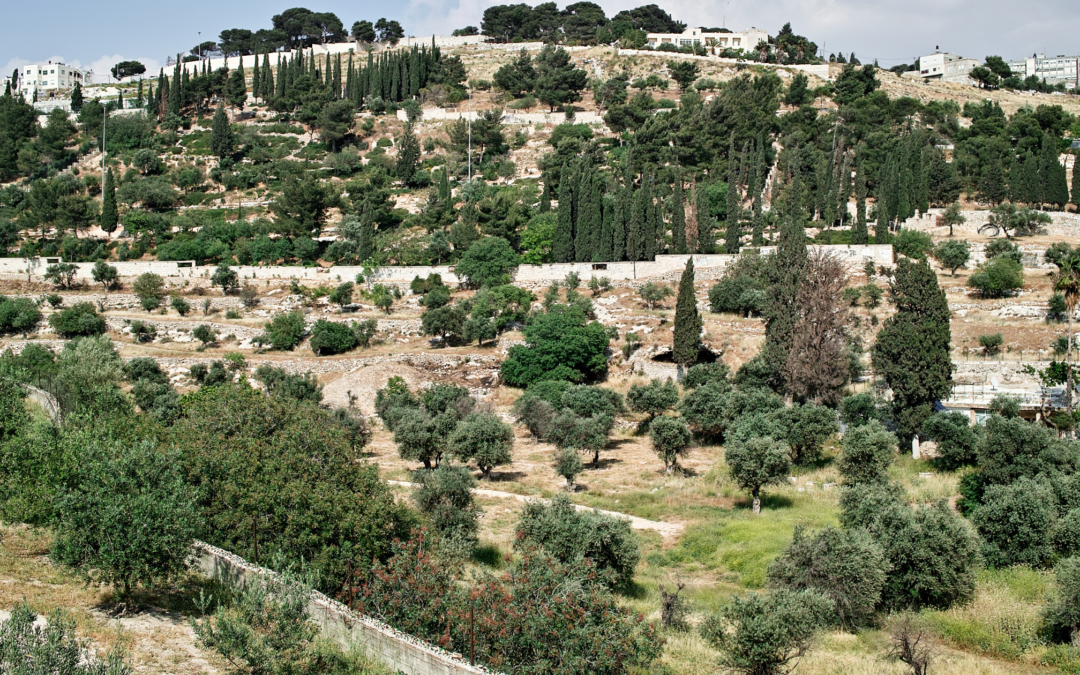One holiday a little northern country girl set out for God’s house in the capital city. With a basket of offerings in hand, she skipped through packed streets and marveled at the grandeur of the buildings. She thought to herself, “If a city can be this magnificent, how much greater must God’s house be?” She was not disappointed when she arrived at the outer gates of the temple and looked up at God’s house. “Oh my Lord, what big buildings you have! And what stones that were stacked just so!”
After a few minutes of silent awe, the little country girl, far from home, overheard the familiar dialect of her homeland. A group of a dozen or so men were following what looked like their teacher out of the temple. One of the men had himself just marveled at the greatness of God’s house. His teacher, however, seemed more troubled than impressed. He responded, “Do you see these great buildings? Not one stone will be left here upon another; all will be thrown down.” Then he walked away, and the group shuffled along behind him in the direction of the Mount of Olives.
The little girl continued wide-eyed into the temple, but could not shake the feeling that the teacher had given her. He seemed to speak with utter confidence that this incredible building would not remain so for long. How could this solid structure hint at its own impending destruction? Here is God’s presence, here are God’s priests and people at worship. Here this holy house sits atop the holy mountain in the holy city of God’s holy people Israel. The little girl wondered, “Who would even do such a thing as to topple a temple? It could only be wolves like those Romans.”
The little country girl spent the week in the city and much of that time on the temple grounds, so far as little girls were allowed to go. With no previous experience to compare it to, she nevertheless picked up on the crowd’s unrest as the festival week unfolded. Everyone looked nervous – the Romans, the residents, the pilgrims, the priests. But God’s magnificent house stood as proudly as ever. This caused the little girl to take solace in the Lord who is exalted over the heavens.
At some point – it was hard for her to recall precisely in the trauma of what unfolded – sometime at the crossroad between the week leading up to the Passover and the weeklong Feast of Unleavened Bread, the little girl saw something new and horrifying. Three men nailed to crosses of wood. And she knew one of those men. It was the teacher, the only one who looked at God’s house with a troubled spirit. What had he done? A kindly old grandmother in the crowd told her that two of those men were condemned criminals who had revolted against Roman occupation. The woman wasn’t sure about the third man, why he wore a crown of thorns, or why a sign above his head proclaimed him King of the Jews.
The little girl now had two things to wonder about. Who could destroy God’s temple? And why would the King of the Jews be crucified in his own capital city? Surely, it must be the Roman wolves. God’s own people would never topple their temple or crucify their King. Troubled by matters beyond her youth, the little girl pulled up her red hood and began to leave the grisly scene. Just before slipping out of the crowd altogether she spied a huddle of men whispering. It was the teacher’s followers! They were arguing in hushed tones.
“Remember the teacher said he would be killed and raised on the third day.” “I thought he said, ‘destroy this temple and in three days I will rebuild it.'” “Come on, you can’t rebuild God’s house in three days!” “So, you can’t raise a dead body in a thousand days either!” “Well, none of this would have happened if you all didn’t turn tail and run away at the first sign of danger yesterday!”
As the girl walked on, she thought to herself that they sounded like frightened, snarling wolves. She left the city, its buildings, and its people far behind. She couldn’t shake the memory of the teacher crowned on the cross. But as she considered his face, she found herself once more taking solace in the Lord who is exalted over the heavens.

